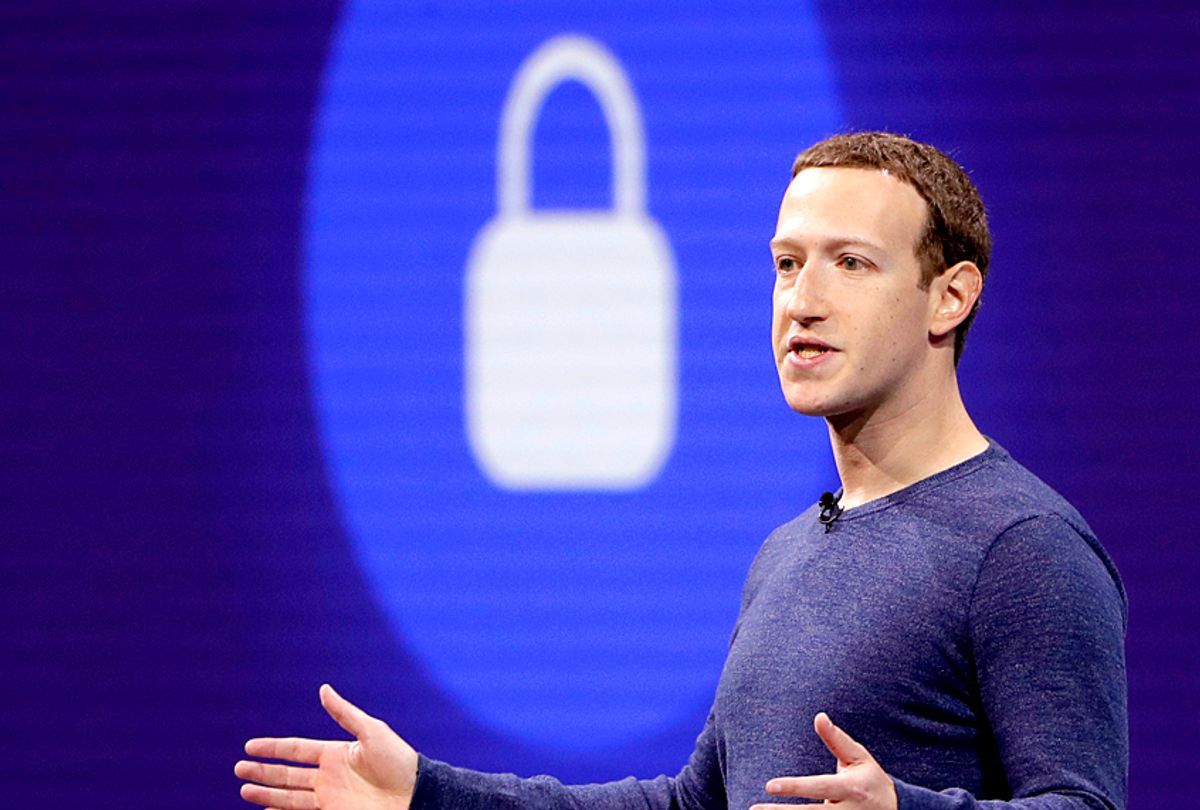Facebook will soon include a dating feature among its services, CEO Mark Zuckerberg announced at the company’s F8 Developer Conference in San Jose, California on Tuesday.
The feature will sling Facebook into a domain in which it has long played a behind-the-scenes role but never entered directly. These days, many digital matchmaking services like Tinder require users to sign up for the app through their Facebook accounts. In this way, Facebook's pivot to online dating makes sense, as it has long served as the critical ingredient for people to begin swiping.
"There are 200 million people on Facebook who list themselves as single, so clearly there’s something to do here," Zuckerberg said. "Today, we are announcing a new set of features coming soon, around dating.”
The service will be opt-in and will not match users with people they're already friends with. Friends will not be able to see users' dating profiles, Zuckerberg said.
Zuckerberg also took a jab at his new competitors. “This is going to be for building real long term relationships, not just hookups,” he said.
Immediately after the announcement, the stock for Match Group, which owns several dating apps including Tinder and OkCupid, plummeted more than 20 percent.
Facebook's decision to enter the dating app sphere perhaps makes sense. The site has long let users state their romantic preferences or status on their profiles, an option it has tweaked over the years. Likewise, a 2017 survey conducted by popular wedding planning site The Knot claims online dating is now the most popular way people date, up 5 percent from 2015.
From the launch of the first online dating site in 1995 to the invention of mobile dating applications in 2007, digital matchmaking has expanded into a billion-dollar industry with countless users, PBS reports. Even Salon used to have an online personals site, which it co-founded with Nerve.com back in 2000.
Today, nearly 2 billion people worldwide use some source of online dating, according to a 2012 study by the Association for Psychological Science. That number has likely increased over the past six years.
But in the wake of movements like #MeToo and #TimesUp, and concerns about user privacy, the way the world views relationships, specifically online dating, is shifting, making it more difficult than ever to understand the already tricky realm of sex and romance. As a result, online dating and relationship platforms are finally facing – and perhaps avoiding – difficult questions: How do we make our platforms safer? How do we eliminate harassment or other inappropriate behaviors that users experience?
Now Facebook – which has recently come under fire since revelations that Cambridge Analytica, an election consultancy used by President Trump's 2016 campaign, had compromised the data of 87 million users – may be putting itself in a position that could land it the hot seat again.
According to an annual report from the Breach Level Index, an organization that tracks publicly disclosed breaches, the technology sector saw a 3 percent increase in breached files in 2017. Since 2013, the organization has tracked nearly 2,000 incidents of compromised records in the technology sector.
Most recently, NBC News revealed that Grindr, a dating app geared towards gay and bisexual men, suffers from a security flaw that can expose the personal information of millions of users — including the location of users who have opted out of sharing such data. In a statement released to NBC News, Grindr said it was aware of the app’s vulnerability and had changed access to data of blocked users. The app did not elaborate on additional measures it would be taking to protect its users, highlighting the reluctance of many digital matchmakers to address issues on their platform.
“Dating apps must especially take care to protect users from letting bad actors access sensitive data,” Harlo Holmes, director of newsroom digital security at the Freedom of the Press Foundation, told NBC News. “This type of info exposure betrays our trust that the service can determine what fields of data should be public and private.”
“If there’s a desire for third-party apps, then building out some sort of interface, like with Facebook, where they could control the data . . . that could help mitigate the risk,” Norman Shamas, an independent cyber security consultant, told NBC News.
“The single weakest point in most security chains is often the human element,” Shamas added. “Not backdoors, not weak authentication schemes — just people with malicious intent that know enough to dupe other people.”

Shares